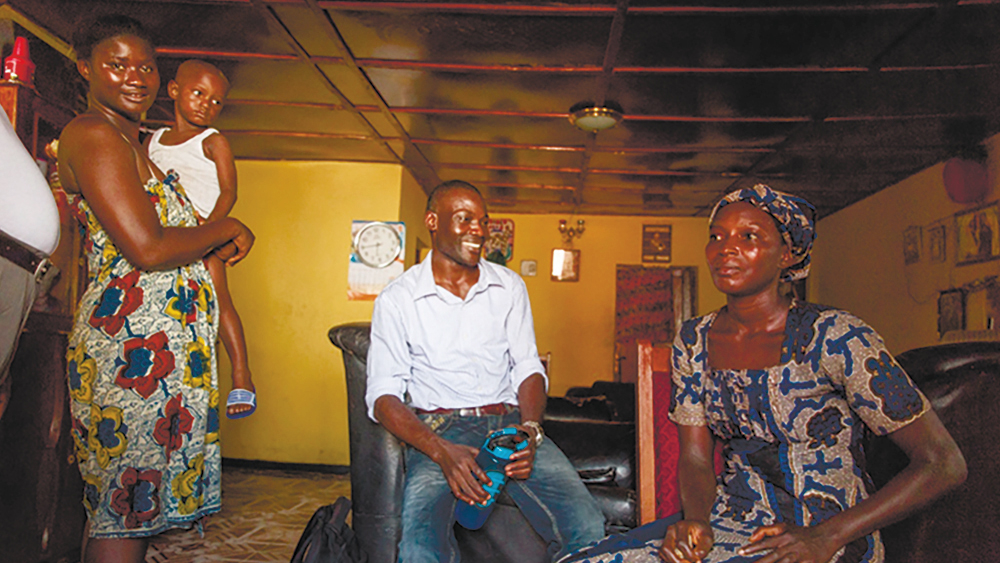Mental health is everyone’s issue
What those with a lot can learn about caring – from those who have less
Traditionally, foreign aid has flowed in one direction, from wealthier nations to poorer. Julian Eaton is a British psychiatrist who has worked with aid organisations for more than ten years in western Africa. He believes we shouldn’t think in terms of a one-way street. In his field of mental health, Eaton diagnoses the entire world as being in a similar state of needing help.
“What is clear – and is an expression that the director of WHO Mental Health Department uses – is that when it comes to mental health, every country is developing. Services are pretty shockingly bad in most countries, even high-income countries.”
“The church, alongside general community, is waking up to issues of mental health.” – Julian Eaton
Eaton is the senior mental health adviser for CBM. He’s also part of many international initiatives and advocacy groups, including the Movement for Global Mental Health. Visiting CBM Australia this year to share wisdom and education, Eaton is glad there has been a shift in the discussion about and treatment of mental health across the globe. “But I would still say it’s fairly early days.”
“The one thing about mental health as a development issue is the fact that it affects all of us. It’s not like some of the world’s issues, like starvation for example, which can be a bit distant. One of the things which has surprised me is how similar the stories are of people struggling to find care and support, and understanding neighbours, in an African context compared with [countries like Australia].”
Born in the Democratic Republic of Congo to missionary parents, Eaton sees his work as a scientist and clinician as his own service of God. While it doesn’t take the form of direct evangelism, Eaton’s involvement in western Africa (primarily Nigeria) has been heavily shaped by his faith.
“I’m serving God through my desire to find effective ways of transforming people’s lives who are often stuck in very difficult situations,” explains Eaton, who also has had opportunity to observe how African churches and Christians respond to mental health issues in their communities.
“The church, alongside general community, is waking up to issues of mental health. Ministers have a particular role in Australia but maybe even more in Africa, where mental health problems are perceived by the population often as a spiritual issue.
“One should recognise the severity of and how disabling these conditions are.” – Julian Eaton
“In some ways, that is helpful because people go to their minister for support and counselling, and that can be absolutely the right thing because the church can be a very loving, supportive community during times of distress. But an issue we have had to grapple with is the population doesn’t think of these issues as something you can go to see a professional about, so sometimes people with severe mental illness go to churches, which don’t know what to do.”
Eaton is enthusiastic, though, about how African communities are still real communities. He’s noticed how high-income nations have eroded social cohesion and neighbourly support in favour of individualism. “As Christians, we should be challenging that,” he says, while alluding to New Testament imagery of the body of Christ, and Jesus’s teachings about loving neighbours. “We should be reintroducing the idea of community and responsibility for our neighbour … It’s not OK to wash your hands of responsibility of the person who is clearly distressed next door.”
As the entire world continues to improve its approach to mental health, Eaton further calls upon Christians to not diminish mental health issues – or use Bible verses about anxiety or worry, to urge people to “pull yourself together.”
“You would never tell someone who has a serious physical illness to pull themselves together.
“One should recognise the severity of and how disabling these conditions are.”





